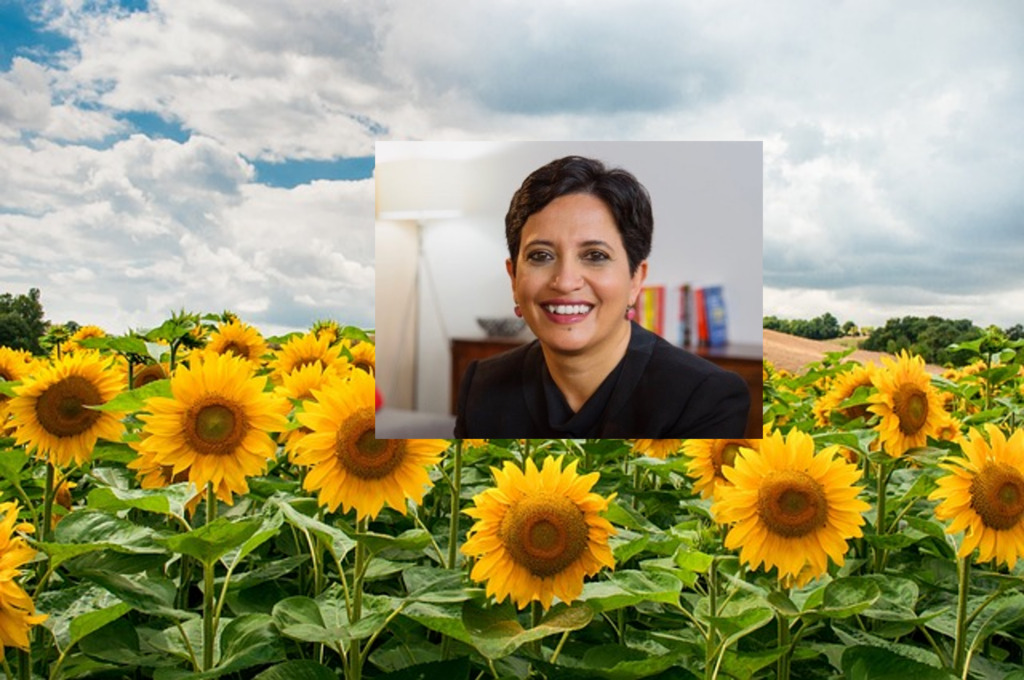Seed Capital
The Accelerator Conundrum: Navigating Your Path to Startup Success

Alright, let’s cut through the noise and get to the brutal truth of the startup accelerator world. Many entrepreneurs, starry-eyed and naive, leap headfirst into 3-month accelerator programs without truly understanding the long-term implications. It’s time for an incisive commentary, a necessary dissection.
>>>1Mby1M Udemy Courses with Sramana Mitra: Financing

Raising money to build a startup is a huge challenge. To be able to raise any money at all, you must first understand how investors think. We have developed the following courses catering to entrepreneurs in different stages of their entrepreneurial journey.
>>>Series A Crunch: Bootstrapping Works
Just because you have been rejected by VCs doesn’t mean you cannot build a great business.
Marc Benioff was rejected by pretty much ALL the VCs he approached. Didn’t stop him from building Salesforce.com into a multi billion dollar enterprise with global impact.
Featured Videos
Can 1M/1M Help Me Raise Money?
How Does 1M/1M Democratize Entrepreneurship Education?
How Does 1M/1M Democratize Management Consulting?
When Is The Right Time To Join 1M/1M?
Can 1M/1M Help Me With Business Development?
Can 1M/1M Help Me With Market Sizing?
Can 1M/1M Help Me Validate My Product?
Will I Have Private 1-on-1 Sessions In 1M/1M?
How Does 1M/1M Help Entrepreneurs Connect With Silicon Valley?
Mentoring or Consulting?
Why Does 1M/1M Charge $1000 a Year?
Why Does 1M/1M Partner With Local Organizations?
Why Don\’t Mentoring Networks Work?
Why Is It Important To Study With 1M/1M Now?
Dan Stewart Story
Vikrant Mathur Story
Series A Crunch: Forget Freemium
What is your business model? Do you have one, or is it TBD?
Is it Freemium?
Series A Crunch: Obsession With Exit
Do you know the difference between a business model and an exit strategy?
Are you building a business that has a real, viable business model?
Or are you trying to do an Instagram?
Series A Crunch: Tyranny of the TAM
What is TAM? Perhaps, the biggest factor in whether a VC funds you or not. TAM = Total Available Market.
Note: Top Down TAM doesn’t matter. You need to present a Bottom-Up TAM Analysis.
And to get funded, that TAM needs to be very large. Billion. Two billion. Ten billion.
Series A Crunch: Revenue vs. Equity
Do you understand the impact of infusing cash into your business? You do, right?
Series A Crunch: Customers vs. Investors
What have you been doing for the last six months? Chasing customers? Chasing Investors?
Series A Crunch: Real vs. Pseudo Entrepreneurs
Much is being said on a daily basis about the Series A crunch. This is our series on the subject. In short, byte-sized posts, I will give you my thoughts on how to deal with the issue. Please note, this advice is entirely for entrepreneurs, not investors.
Having Trouble With Series A Funding?
There is a lot of talk right now that Series A funding has gotten difficult for the tens of thousands of entrepreneurs who have received angel financing over the last 18 months. Some data from PEHub:
According to the University of New Hampshire’s Center for Venture Research, the number of active angel investors topped 300,000 last year, up 20 percent from 2010. The ranks of the matchmaking service AngelList also swelled, with 2,500 investors joining the community last yearalone, most of them in the last six months. (When AngelList got its start in the spring of 2010, it listed 80 accredited investors.) A study from UNH shows that angels put a fresh $9.2 billion to work in the first half of this year, a 3.1 percent increase over the same period in 2011.
Meanwhile, the number of firms that are actually investing is dwindling, despite the best efforts of partners to save face. The NVCA pegs the official number of “active” traditional firms at 500, but according to NVCA President Mark Heesen, this number is misleading, because at least 200 of the firms only do a deal or two a year.
Last year, some 66,230 companies received $22.5 billion through angel investors, up from 36,000 receiving $15.7 billion in 2002, according to the Center for Venture Research at the University of New Hampshire.
Pre-Seed Money via Crowdfunding: A Conversation with PleaseFund.Us’ James Bailey
James Bailey completed his economics degree at Durham University in 2005 and started working in a technical role at data marketing specialist Dunnhumby on the campaigns team. After leaving Dunnhumby, James worked full time on a large property development in Morocco. He approached Tarkan Ahmet with the goal to create the UK’s best crowdfunding platform back in April 2011. Since then, James has been working with Tarkan on growing PleaseFund.Us. They have based the company at their Queens Club, London, office, from where James has been working full time since August 2011.
Sramana Mitra: What is your offering in the domain of crowd funding to fund startup ventures?
James Bailey: PleaseFund.Us is a unique crowdfunding platform in terms of both service and offerings. >>>
Seed Capital Using Crowdfunding: Korstiaan Zandvliet, CEO of Symbid, Amsterdam (Part 1)
Korstiaan Zandvliet holds an MSc in New Business Venturing and Entrepreneurship and has a background in sociology and business administration. He is a frequent writer of blog articles on social media, crowdsourcing and c. After holding a position as marketing manager for a Dutch software company (www.mendix.com), he co-founded a company called Symbid, which aims to help nascent entrepreneurs to overcome financing problems for their start-up or small business. Symbid focuses on entrepreneurial finance needs up to €2.5 million by using the concept of crowdfunding in a new way. In contrast to currently available crowdfunding sites, Symbid developed a financial and legal framework, which allows crowdfunders to actually become a shareholder of the offered crowdfunding propositions. For more information, visit www.symbid.com.
Sramana Mitra: Korstiaan, welcome to the blog. To start, would you tell us more about your offering is in the domain of crowdfunding to fund startup ventures? >>>
Seed Capital: Kae Capital Managing Director Sasha Mirchandani
As you may know, I’m a strong supporter of bootstrapping. But I understand that some companies simply can’t get off the ground without significant financing from investors like those at Kae Capital. My interview with managing director Sasha Mirchandani will help entrepreneurs who are looking for seed capital to understand what to expect if they should decide to pitch investors at Kae Capital.
Sramana Mitra: Hi, Sasha. Tell us briefly about your group. >>>
Seed Capital: IndiaCo Investor Rahul Patwardhan
[We just received a tragic news that Rahul passed away of a cardiac arrest.]
The entrepreneur ecosystem continues to grow in India. This is an exciting time for both startups and investors. As my interview with Rahul Patwardhan of IndiaCo shows, there are investors for every sector. If they do their own due diligence before sending out pitches, those entrepreneurs who need funding to get their ventures started can find several potential investors in their chosen industries.
Sramana Mitra: Hi, Rahul. Tell us briefly about your group. >>>
Seed Capital: Independent Investor Rehan yar Khan
The entrepreneur ecosystem in India is growing by leaps and bounds. Still, almost all of those who apply for funding are rejected, and it’s not always because they don’t have viable products or services. Often, entrepreneurs get rejected because they pitched to the wrong investor. An entrepreneur with an e-commerce company should not be pitching to an investor who specializes in green tech or manufacturing. Read carefully, entrepreneurs, if you want to pitch to Rehan yar Khan. >>>
Seed Capital: Independent Investor, Mukund Mohan
Sometimes, the reason an entrepreneur is denied funding isn’t because he doesn’t have what it takes to succeed. And it’s not because he doesn’t have a viable idea. Sometimes the only reason an entrepreneur gets turned away is because he didn’t pitch to the right investor. Read on to see what Mukund Mohan and his wife are looking for in a company and in an entrepreneur.
Sramana Mitra: Hi Mukund. Tell us briefly your background.
Mukund Mohan: My wife and I have been investing as individual investors in early stage technology companies for over 10 years, since 2001, in the Bay area, and since 2008, in India. We have invested in seven companies so far in India, and in the US we had invested through an investment vehicle called Zodiac Ventures LLC. >>>
Calling All Angel Investors
We are doing a retrospective on my blog on Seed Capital from Angel Investors as part of the 1M/1M project. As we speak with a variety of angels in different regions, what strikes me is the number of startups out there looking for seed capital. >>>
